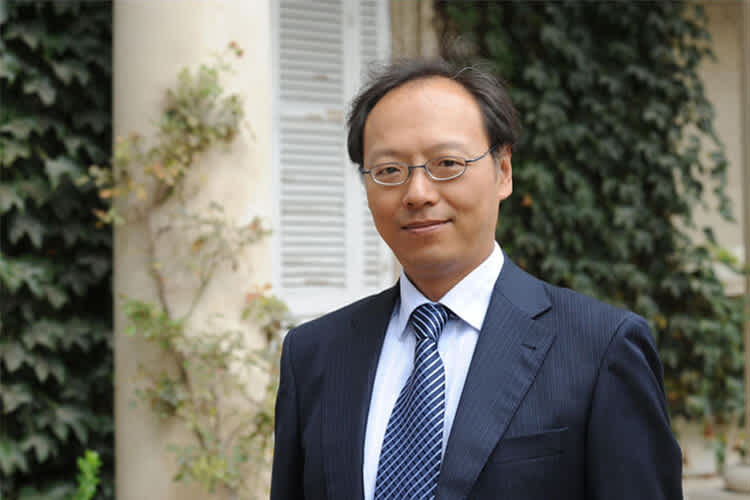An External View on Recruit Group's Efforts
As a global business school headquartered in Barcelona, IESE Business School has established connection and partnership with Recruit Group for some years, and case studies on Recruit Group have been used in MBA classes. As part of my research on leadership and cross-cultural management, I have met several executives and employees of Recruit Group in Tokyo and Barcelona, learning of the latest developments in the organization and exchanging our views of leadership. These encounters have always been the highlight of my trips to Tokyo. The energy, creativity, and enthusiasm of Recruit's members constantly impress me.
Recruit's Culture to Balance Result-focused Approach With Respect for Individuals
Recruit is highly results-driven, with clear focus on business targets (e.g., EBITDA). Such commitment to results is probably not surprising for any company that aspires to achieve business excellence. What is interesting about Recruit is its approach to achieving outstanding results. To be innovative and achieve performance, Recruit gives remarkable amounts of autonomy to individuals and business units so that they can be entrepreneurial in the process of value creation.

Yih-Teen Lee Professor of Managing People in Organizations IESE Business School
Recruit also puts extraordinary trust in young people, allowing them to generate new ideas and implement them. Furthermore, Recruit is open to confronting its mistakes and learning from them, in order to become stronger. This unique quality, which proves elusive for many companies, has the potential to propel Recruit to corporate leadership on the global stage.
In my view, Recruit's culture is the critical mechanism to balance its results-focused approach with an orientation toward caring for human beings. Recruit emphasizes in its vision, mission, and values statements (VMV), the social value and purpose in all the business activities and innovation of the group. Most executives and members of Recruit share such understanding and implement this ideology in fulfilling their roles. In effect, Recruit's members channel their desire to serve society into individual initiatives which bring innovation and generate value for the company and the society.
Not to Miss Opportunities for Synergies While Respecting Autonomy and Diversity
It is also interesting that Recruit has been mindful of empowering business leaders to operate autonomously. This is certainly prudent, given the varied nature of business activities in each SBU, with some very dependent on local context. Furthermore, Recruit avoids intervention of HQ during international acquisitions, a tendency likely informed by the company's unsuccessful Chinese expansion in its bridal magazine business in the early 2000s. At the first sight, this approach seems to show great respect for diversity as it allows each business to operate on its own.
However, pushing too far into this direction may cause Recruit to miss opportunities to leverage the group's rich diversity and generate more synergy for business innovation. Connecting seemingly unassociated dots is the essence of innovation. Connecting Recruit's people across business units and cultures, formally or informally, may allow such opportunity to be realized. Interviews with several members of Recruit have also revealed the wish for such synergy.
Take on the New Challenge to Bridge Cultures Strategically With a Good Understanding of the Essence of the VMV
If you effectively connect your diverse people and businesses, that can foster opportunities for fruitful interaction in the company, creating new opportunities for synergy generation and business development. To make it happen, executives and leaders of Recruit must enact strategic cultural bridging, involving actions creating alignment at cognitive, emotional, and behavioral levels. Certainly, such an initiative needs to be carefully introduced so that Recruit maintains its spirit of empowering its people and businesses to generate innovative ideas and make critical business decisions.
I believe the culture of Recruit, embodied by the VMV, can play a critical role, serving as a common ground to unite people under the same purpose and principles. By so doing, Recruit's members would be enabled to connect and contribute to the organizational mission of serving society in unique ways. Ensuring that all members of Recruit share a clear understanding of its culture and live up to it, is the key. This would make Recruit Group a truly global company with strong Japanese roots.
Yih-Teen Lee
Professor of Managing People in Organizations
IESE Business School
Yih-Teen obtained his Ph.D. from HEC, University of Lausanne. At IESE, he has taught leadership and cross-cultural management since 2006. His article on culture and person-environment fit won the Best International Paper Award at the Academy of Management 2006 Annual Meeting. Currently, Yih-Teen is conducting research on companies globally successful with unique cultural bridging processes different from traditional theories in order to find out a new cross-cultural management method. He identifies himself as a multicultural individual, growing up in Taiwan, trained as a scholar in Switzerland, working for a global business school based in Barcelona, and spending family time in Paris.